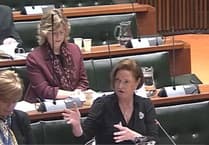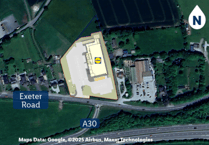Residents within the Okehampton Town Council’s boundaries can expect to see a rise in council tax in the new financial year, as councillors approved the 2024/25 budget this week.
At a meeting on Monday (January 22), town councillors agreed to raise the precept (the sum of council tax given to a town or parish council) for the upcoming financial year, which starts in April, by nearly 5.6 per cent.
This will see the precept increase from £421,893 to £444,996 and mean the average Band D property pays an extra 20p per week, equating to £10.43 annually.
Council staff have allocated an extra £940, £28,412 and £7,266 to the democratic, property and park and open spaces costs in the 2024/25 budget but have also decreased the amount allocated to administrative costs by £13,515.
This is a significantly lower rise than last year when the precept increased by 32 per cent as a result of the cost of living crisis.
Chair of the town council’s policy and resources committee Cllr Julie Yelland, said that statutory pay increases in the public sector accounted for most of the rise.
She said: “Councillors are not paid - it’s voluntary, but council staff [for example, the clerk] are, and the majority of the increase is because of the statutory wage increase. We have to approve that as it’s decided centrally.
“Last year, costs increased and this had to be factored in. Now that [price rises] are settling down, we have not needed to increase it so much.
“We take a prudent view, looking at saving where we can while providing the best possible service.”
Okehampton Town Council is responsible for managing many of the facilities in the town centre, including the public toilets on Market Street and at Fairplace, Simmons Park, Clapps Wood and the skatepark.
These costs will not affect residents living within the boundaries of the Okehampton Hamlets Parish Council, which has set its precept at £36,038 meaning a Band D property pays an extra £5.38 per year - a rise of 12.65 per cent.
Next month West Devon Borough Council will also approve its budget which is expected to rise by 2.99 per cent - an increase of £7.59 pence for an average band D household per year.





Comments
This article has no comments yet. Be the first to leave a comment.